Making your own natural lip balm is easier than you might think! With just a few simple ingredients, you can create a nourishing, chemical-free balm that keeps your lips soft, hydrated, and protected. This DIY lip balm recipe uses natural oils, butters, and optional essential oils for a touch of fragrance, allowing you to customise it to your preference. Perfect for beginners and seasoned DIYers alike, this recipe offers a fun way to craft your own skincare and ensure you're using high-quality, natural, moisturising ingredients on your lips.
Supplies Needed
A double boiler - or, create a makeshift double boiler by nesting a stainless steel bowl, heat-safe glass bowl, or smaller pot inside a larger pot. Add water to the bottom pot and make sure the top pot is resting in the water.
Small containers to store your final homemade lip balm. We have stunning lip balm containers available.
Optional: a glass measuring cup
Ingredients
- 1 part beeswax.
- 1 part cocoa butter. You could also use shea butter. We personally love the creamy, chocolate-like notes that cocoa butter adds to natural lip balms!
- 2 parts high-quality edible oil. Feel free to combine a couple different oils if you’d like. If I had to choose just one, we recommend organic sweet almond oil. It’s highly moisturising, full of nutrients, and has a very mild flavour and scent.
We listed the ingredients in “parts” (by volume) so you can easily scale the natural lip balm recipe up or down to your liking. For example, use 1/2 cup beeswax, ½ cup cocoa butter, and 1 cup oil. Or for a much smaller batch, combine 1 tablespoon of beeswax and 1 tablespoon of cocoa butter with 2 tablespoons of oil.
How to Make Your Very Own Homemade Lip Balm
- Have all your supplies and ingredients out and ready before starting.
- Measure and/or weigh the oil, wax, and cocoa or shea butter and add to the top portion of a double boiler. Be sure to put water in the lower portion of the double boiler; enough so the bottom of the top pan is resting in water.
- Heat the ingredients over medium-high heat until all of the ingredients completely melt and combine. Stir occasionally. Do not cover the pot while heating; the introduction of condensation (water) can negatively impact your lip balm.
- Turn off and remove the pot from the heat before adding essential oils. Essential oils are very volatile by nature, and thus will quickly dissipate on high heat.
- While it is still hot, carefully pour the liquid into your lip balm containers of choice. If you have one handy, we find it’s easiest to transfer the melted mixture from the double-boiler into a glass measuring cup first (in batches if needed) and then pour it into small lip balm containers from there. Microwave the glass measuring cup for 30 seconds first to prevent the mixture from cooling too quickly or sticking when it comes in contact with the cool glass. If the mixture starts to harden before you’re finished pouring, simply return to the heat to re-melt.
- Once the lip balm has completely cooled and hardened, add lids or caps and labels.
- Enjoy soft, supple, moisturised lips with a little tingle!
- For the easiest clean up, immediately wipe the pan out with a paper towel. If the lip balm residue starts to harden inside, lightly heat the pan again to help it melt once again.
How long does homemade lip balm last? Can it expire?
As a general rule of thumb, consider homemade lip balm “good” and safe to use as long as it looks, smells, and feels normal – typically for several months or up to a year. Signs that homemade lip balm has expired or gone bad include “off” odour’s, tastes, or visible mold on the surface of the lip balm or inside its container.
A number of factors influence the shelf life of homemade lip balm, including the ingredients used and how it is stored or applied. For instance, certain oils are more prone to going rancid more quickly than others (though beeswax does act as a natural preservative and helps to extend their shelf life). Furthermore, using a tube applicator or dipping clean fingers into a lip balm tin will help it last longer than applying lip balm from a tin with soiled fingers.
What if my homemade lip balm is too hard (or too soft)?
If your homemade lip balm comes out too soft, the easiest fix is to re-melt it and add a tad more wax. On the other hand, if the lip balm is too firm you can re-melt it and add more oil instead. Yet if you follow the natural lip balm recipe we provided above, this shouldn’t be an issue.
We hope you love this recipe! Please let us know in the comments if you tried it and tag us on Facebook and Instagram with your creations! :)

